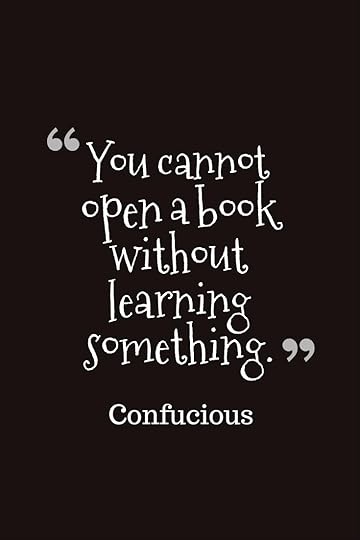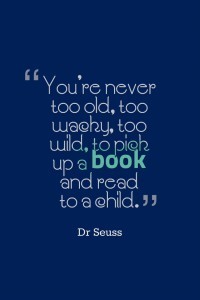Sally Murphy's Blog, page 49
February 1, 2016
Keeping a Book In Print: Some thoughts on a Book-Birthday
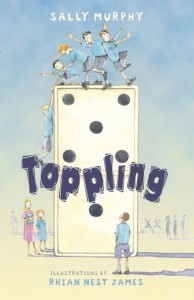 This morning Facebook reminded me that six years ago I was celebrating the release of my verse novel, Toppling. Six years! In some ways it feels like yesterday. But then I think of things that have happened in my life since that particular came book out: writing wise, including having lots more published, and personally, including moving towns, becoming a grandmother, returning to university, travelling… Oh wow, only six years?
This morning Facebook reminded me that six years ago I was celebrating the release of my verse novel, Toppling. Six years! In some ways it feels like yesterday. But then I think of things that have happened in my life since that particular came book out: writing wise, including having lots more published, and personally, including moving towns, becoming a grandmother, returning to university, travelling… Oh wow, only six years?
Anyway, the great thing about realising Toppling is six years old is the fact that, in spite of its age, it’s still in print (here in Australia, with Walker Books, and in the USA with Candlewick and in the UK, with the title John and Dom) .
Six years is a long time for a trade book to still be in print. Even though being in print doesn’t guarantee that it is sitting on shelves in very many brick and mortar bookstores (who change their stock regularly), it does mean that it’s available for purchase through online stores, and most bookstores will get it in when asked.
So what is it that keeps a book in print – and what part can an author play in that?
Publishers need books to sell (just like an author does), so if copies of a book continue to sell, it is more likely to stay in print. From my perspective, this means making sure prospective readers still know about the book and where they can buy it. To do that, I blog about it, talk about at school visits and festivals, have it visible on my webpage and so on.
Winning awards is fulfilling, but it also means the book is likely to be sought out by readers, librarians, teachers
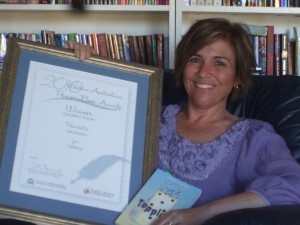
After winning the WA Premier’s Literary Awards
and parents. . A shiny sticker on the front, especially from an organisation such as the CBCA adds an implicit recommendation to the book. Which in turn leads to sales, so it is kept in print. Luckily for me, Toppling won the children’s literature category of both the Queensland and WA Premier’s Literary awards, as well as being shortlisted for the CBCA Book of the Year and other awards. From an author’s perspective, you can’t do much about winning these awards (apart from making sure your publisher nominates them) but you can spread the joyous news both at the time and in your profile for years to come.
Timelessness or, at least, longevity of the story. A story that is all about the latest gadget, or about an event that only happens once (say, for example, this year’s Rio Olympics) may sell really well in the short term, but not so well after the event or gadget has faded away. (NB – this kinds of books are not necessarily a bad idea – just not so relevant in a post about keeping things in print). Stories that deal with issues or topics or experiences that are always relevant have a chance of appealing to readers for a long time. Toppling is about friendship and about childhood cancer, both subjects which remain current six years after the book first came out. As an author, I wish that childhood cancer would stop being relevant (because I’d like to see it wiped out of existence), but since that isn’t happening, I’m glad my book is able to tell a story which connects with readers six years down the track.
Undated content. This is kind of similar to number 3., but is about how the story is told. Using trendy words, or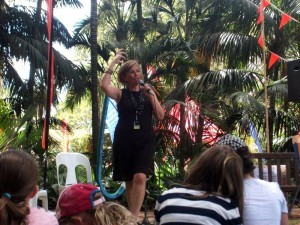
I’ve changed in the last six years so it stands to reason other things have, too.
games, or clothes, that change rapidly can make a book seem outdated very quickly. We all know (or, perhaps, like me, ARE) people who use what they think are young-people words that result in eye-roll from kids so they are so outdated. Rad? Cool? Groovy? In books there is a danger not just of putting those rapidly changing words into character’s mouths, but also using them in the text for description and narration. It could be not just the dialogue, but the latest game I have my characters play, or the television show they watch or a million other details which make the book seem ‘old’ but not historical fiction (which is another matter entirely). This is not to say a book will go out of print just because a character watches Masterchef and then Masterchef stops being televised, simply that sometimes details can date a book. So, as author, you can’t try to make a book completely devoid of small details, but you can avoid being too trendy.
Writing other books. I mentioned that I’ve had other books come out since Toppling. Having multiple books helps to keep the older ones in print. This called a backlist. When a reader discovers your latest book and likes it, they often go looking for what else you’ve written. So, for publishers (especially if it’s the same publisher), keeping the older books in print is worthwhile. Roses are Blue, my next verse novel after Toppling, came out 4 years later, meaning that many of the young readers who read Roses had not yet read Toppling. But many of them did (and still do) go on to read Toppling, and my other, earlier verse novel, Pearl Verses the World). As an author, of course, what I can do here is to make sure I keep writing new books, and perfecting them, so they keep getting published.
Not every book will stay in print forever, and there can be lots of reasons for this. But I’m glad Toppling is still around, and I aim to do my bit to keep it in print for a bit longer yet.
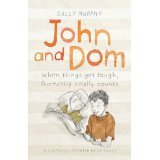
The UK Cover – same book, different tile.
January 31, 2016
January 28, 2016
Poetry Friday: Hello
It’s Poetry Friday, my favourite day of the week.
Last week I was lucky enough to have a holiday in Singapore, where I spent five days seeing amazing sights, eating amazing food, doing exciting things (some involving roller-coasters) and smiling a lot.
I came home with lots of memories and about a bajillion photos. I’ve been busy sorting through these and will be sharing some here on the blog in coming weeks. Of course, if I can combine a photo with a poem, even better.
So, here’s the first, based on this beauty I met face to face at the Singapore Zoo.
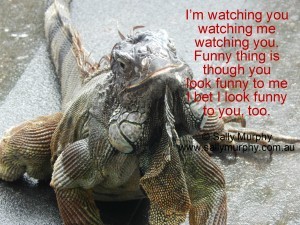
Today’s Poetry Friday roundup is hosted by Catherine at Reading to the Core. Head over there to see what other poetry goodies have been shared.
January 25, 2016
Send the Bill: Why Authors Shouldn’t Work for Free
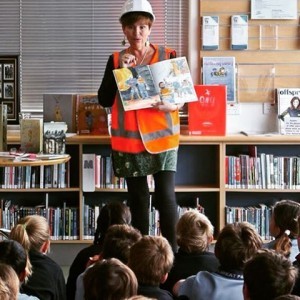
Working hard on a school visit.
Last week I blogged about why festivals should pay authors, and touched on the regularity with which authors are asked to speak for free. What I didn’t touch on is why it is important to for authors to stick together when it comes to expecting payment.
Back when I was first published, I knew nothing about ASA Rates and wasn’t even sure whether I would get paid when I was asked to speak. Luckily I had some great mentors and gathered information as I went, so I soon learnt that there were industry rates I should be charging.
Still, I used to feel really awkward bringing up the subject of payment, and even worse when it came to quoting the actually amount. It seemed like such a lot to ask for, and I knew that budgets were usually very tight, especially in schools. Now, though, I always ask for ASA Rates, and I really believe that all authors and illustrators should do the same. Here’s why:
It’s good value. The fee covers not just the author’s attendance and presentation, but their preparation time and the years of experience they have. In my case, I’ve been writing all my life, a qualified teacher for 25 years and a published author for 19 years. When we pay a doctor/lawyer/landscape gardener, we are paying both for their time and their expertise. It’s the same for an author.
It’s fair to other authors. If some authors charge ASA Rates and others don’t, it sets up a system of undercutting and competition, albeit unintentionally. If I charge $300 for something that Author Z charges $600 for, the organisation that has booked me will be reluctant to book Author Z. But if Z and I charge the same, then the organisation will make choices based on the author rather than the cost. Australian authors are really supportive of each other, and this is one extra way of supporting your author peers.
The people who book you value your visit more when they are paying for it. I’ll admit I have worked for free from time to time. Sometimes it’s for a charitable cause, or to give back to an organisation (for example, speaking for free at my own children’s school) . On a couple of occasions, though, I have said yes to something unpaid because I’ve seen it might have flow on effects, like further (paid) work, or publicity attached to it. Very often, these visits are the ones where no preparation has gone into my visit – staff at a school haven’t been informed I’m coming, or there are none of my books in the library for the audience to borrow afterwards (or, for that matter before).
The idea of a free talk being good for promoting your work is questionable. If the audience can’t buy your book straight away (such as sales on the day), the number of sales resulting from your visit will be small. Some will leave planning to buy the book, but only a few will go on to actually buy it. If your audience is children, this likelihood increases – because the adult who makes purchasing decisions hasn’t seen your talk.
You need to make a living. If you work for free, then somewhere along the line you are going to have to do other work to pay the bills. This takes time away from your ability to write more stories. If you are paid to speak about your work it buys you time to do more work. At the same time, because it’s inspiring to interact with readers, and they will often give you feedback on what they liked about your work, your writing improves.
Having said all this, if you are going to do paid gigs, you should do so professionally: prepare what you are going to say, arrive promptly, treat audience members with respect, thank your hosts and be generally gracious. Give them value for money so they’ll book you – or another writer – again. And, when you do send that bill, take the time to thank the organiser for inviting you.
January 24, 2016
January 21, 2016
Poetry Friday: Cruel Mother
A couple of weeks ago we had family visiting from Victoria, so we took them out for a lovely dinner on the waterfront in town. It was a perfect summer evening and a lovely evening. But the light show we glimpsed in the distance proved to be far more sinister than we imagined. Here’s my poem in response to that:
Cruel Mother
After dinner
we revel in gentle breeze
across darkening water
enjoy impromptu
lightning light-show
and marvel
at Mother Nature’s beauty.
Next day
and next
and next
and next
we watch
the firestorm
lit by that same lightning
destroy
forest
buildings
towns
lives
and wonder
how a mother
can be so cruel.
(Poem copyright S. Murphy 2016)
And, to show the foerocity of what came from that lightning storm, here’s a little footage:
Today’s Poetry Friday roundup is hosted by A Teaching Life. Head over there to see what other poetry offerings are on this week’s menu.
January 18, 2016
Pay Up: Why Authors Should be Paid to Speak (Part 2)
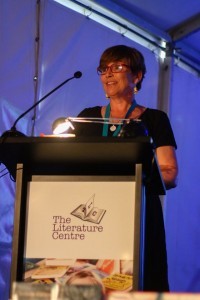
Speaking at Celebrate Reading at the wonderful Lit Centre, which always pays ASA Rates.
Yesterday I spoke about the reasons authors should be paid to speak. I spoke about why it was important for the authors to be paid, but I didn’t talk about what was in it for the people paying the authors – the festivals , schools and libraries who I’m saying should be paying authors for their time. So, here we go with why it makes sense to pay authors to speak:
We entertain (and inform) audiences. The very popularity of literary festivals vouches for the fact that people want to meet and see and hear authors speak about their work, about life, about all kinds of things.
When we are paid, we are more likely to go the extra mile. It makes sense, doesn’t it? If authors are being paid for their time, then they are likely to see presenting as a job, and therefor prepare well, and give generously of that time.
Literary festivals, school author visits, library talks, dinner speeches etc etc all promote literacy and reading. In the case of children’s authors, this link is hopefully obvious – hearing from a real live author encourages children to read not just that author’s books, but more (and hopefully more and more). But this works for adults too. Hearing a good speaker read from and talk about a book leads people to read more.
The hour long presentation is the culmination of many hours’ work. Although most festival and school sessions are an hour or less (with the exception of workshops), the fee paid to the speaker takes into account the amount of time that goes into preparing for the session as well as the years spent honing the skills used to write the book and develop speaking skills.
Authors promote the festivals/events they speak at. Most authors use social media (Facebook, Twitter, blogs, websites) to spread the word about their appearances, drawing audience members, and spreading the word for future festivals. They also talk among themselves. A good festival experience will be shared with fellow authors socially. I have a wish list of festivals I’d love to attend based on their treatment of author friends. Payment is one part of this experience.
If you are running an event in Australia arnd are not sure what you should be paying, the Australian Society of Authors (ASA) has a detailed list of rates, which should be a great starting point. And, if you are an author, I encourage you to charge properly for your time. Again, thanks Philip Pullman for bringing this issue to the fore.
Pay Up: Why Authors Need to be Paid to Speak (Part 1)

Speaking at the Perth Writers Festival, which pays ASA Rates. Hooray!
This week author Philip Pullman has been in the news for pulling his support of the Oxford Literary festival because it does not pay authors to appear there. Bravo Mr Pullman! The news that other prominent UK based authors have signed an open letter calling on authors to boycott literary festivals which do not pay has kept the topic in the spotlight. I thought I might devote some blog time to examining this issue from the Australian perspective .
Though in my experience most festivals here in Australia pay, and pay the recommended ASA Rates, I don’t know any author who has not, on numerous occasions, been asked to speak at a school, festival, library or other event for free. It’s happened to me more times than I can count.
There are two main arguments put forward for speaking for free. Firstly: standing up in front of an audience is great for promotion. People will hear you speaking and go and buy your book.
Let’s look at that for a moment. An audience might range from a few people to a few hundred people. Let’s assume I speak to a group of 100 people. And let’s say I am absolutely riveting in my presentation, which inspires all hundred of those people to buy one of my books. Should they each buy a $20 book, sales will come to $2000. A tidy sum for my hour’s work? Maybe, except of that $2000 my royalty cut, at 10%, is $200. That’s if the book is not illustrated (which most of mine are) , in which case my royalties are 5%, so $100. Which I’ll receive up to six months later, because royalties are paid twice yearly. Of course, a bigger audience might mean more sales, but the reality is that it is highly unlikely that every audience member will buy a book, especially at a festival, where there are numerous authors presenting, because attendees will need to make purchasing decisions based on budgets and the strength of their book-carrying backs.
Of course, promotion isn’t all about book sales on the day. Making a name for myself might lead to sales of future books, as well as future sales of my backlist (once they read one book, they’ll want to hunt them all out, right?) In my wildest dreams all 100 of those people might go and buy all 10 of the trade books I have in print – resulting in $20000 sales, and $1000 royalties. Over weeks, months or even years.
The second argument for speaking for free is about budgets. If festivals (or schools, or libraries, or whatever) paid authors to speak, then they couldn’t afford to hold the event. And of course we all want to encourage reading through such events, don’t we? Yes, we do. But this argument doesn’t hold up unless everyone else who works at the festival is also working for free. The program manager. The venue staff. The sound/lighting people. The printer of the programs. The catering staff. If these people – who all do important jobs – are getting paid, why not pay the talent? The people standing up front who are, after all, the ones that the audience is coming for, are entitled to be compensated for their time. Because if there are no speakers, there is no festival.
I said there were two main arguments given for not paying authors but there is a third, unspoken one: the implication that authors don’t need the money. Because we’re all rich. Right – if earning $12, 900 a year makes us rich. That’s right – the average Australian author’s income is less than $13 thousand a year. So that fee for speaking is much-valued income which gives us a little bit more time to write. When we speak for free we not only miss out on that payment, but we are also taken away from either writing, or from a day job which enables us to eat – because authors, just like every all humans , like to eat, and pay bills and so on.
So, thank you again Mr Pullman for standing up for authors. Thanks too to the many festivals and schools and libraries across Australia who pay authors properly. And thank you to the ASA who fight for the rights and conditions which Australian authors enjoy.
This post has focussed on why the authors need to be paid. Tomorrow, I’ll look at what’s in it for the festivals. .
January 17, 2016
January 14, 2016
Poetry Friday: The Heirloom
Welcome to Poetry Friday. This is my first Poetry Friday post for 2016, and I want to share a poem I wrote in response to an unexpected Christmas gift.
The Heirloom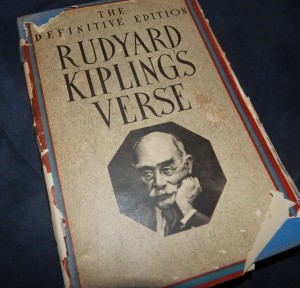
I can tell at once the gift is a book
and I wonder
what it is
my parents
(who gave me my love of words)
have thought to gift me now
that my house and life
are filled with books
I often pass on to them.
I unwrap the parcel
hoping I can show delight
to eager watchers.
I needn’t have worried.
An ageing book of poetry
was never likely to disappoint.
A perfect gift made more so
by my grandmother’s name
etched inside the cover
connecting the three generations
of first owner
gifters
and recipient.
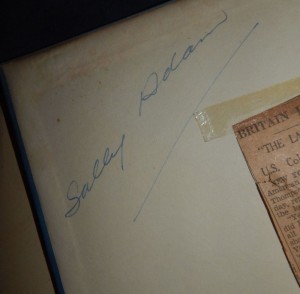
My Grandmother’s name, which we once shared.
Have a great Friday. This week’s roundup is at Keri Recommends.


